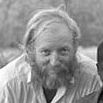2011 Annual Report
2011 was our sixth year as a regular section of the AAA. At the annual meeting in Montréal, we sponsored one poster and two paper sessions. We held board and business meetings, discussing several topics ranging from trends in EAS membership to the recent controversy over the AAA’s decision to strike the word “science” from the long-range plan.
BOARD COMPOSITION
The EAS would like to thank retiring board members Pat Draper (past president), Donna Leonetti (treasurer), Monique Borgerhoff Mulder, John Ziker (contributing editor) and Adam Boyette (student member) for their dedicated service. We welcome incoming board members Dawn Neill (Cal Poly) and Siobhán Mattison (U Auckland) as treasurer and contributing editor, respectively. We appreciate Carol Ember (Yale) and John Patton‘s (Cal State Fullerton, past president) continued service. Finally, I (Frank Marlowe, U Cambridge) am taking the helm as president.
MEMBERSHIP
EAS had 292 members at last count: 173 regular and 119 students. Membership remains lower than our peak of 377 in April 2008 and we have discussed ways to enhance recruitment of new and lapsed members, including updating our website and increasing participation of student members at yearly meetings (see below).
FINANCES
Our finances are similar to previous years. Of our $4508.03 yearly balance, we spent $863.90 on the annual meeting party in Montréal. Dawn Neill and Mary Shenk hosted the party, which was so enjoyable that partygoers were asked to spread their merriment to the empty hotel lobby bar. We also spent $500 for our annual awards (see below) and $1,300.00 on 13 student travel subsidies for the 2010 meeting.
AAA ANNUAL MEETING
The annual meeting in Montréal included three EAS-sponsored sessions, selected by the 2011 Program Committee (Bev Strassmann, Alex Bentley and Rob Walker). Our sponsored sessions were: “Lasting Legacies and Changing Tides in Human Behavioral Ecology” (organized and chaired by Brooke Scelza); “Attachments, Alliances, and Reputations: Tracing Cooperation through Time, Space, and the Lifespan” (organized by Adam Boyette and Shane Macfarlan); and “Recent Advances in Evolutionary Anthropology” (poster session organized by Jonathan Stieglitz).
We also want to thank the judges of submissions from the previous year’s program (2010) in New Orleans: Rebecca Bird, Mark Flinn and Frank Marlowe.
AWARDS
The Awards Committee (Wesley Allen-Arave, John Ziker, Mary Shenk and Frank Marlowe) selected the following winners from among the sponsored sessions:
-
Best New Investigator Award: Brooke Scelza (UC Los Angeles), “Old Theories, New Data: Paternity, Fidelity and Female Choice Among the Himba”
-
Best Student Investigator Award: Katherine E Starkweather (U Missouri), “A Survey of Non-Classical Polyandry,” co-authored by Ray Hames (U Nebraska)
Please see the [EAS website][www.evanthsoc.org] for the 2010 (New Orleans) meeting awards and information. Each winner received a check for $250.
FUTURE
Our future plans are to try to attract members, especially students. We also encourage our members to engage in reciprocal membership arrangements with the Biological Anthropology Section (BAS), the Society for Anthropological Sciences (SAS), and the Archeology Division (AD). Co-sponsored sessions at the annual meetings were discussed as one way to expand our number of presentation slots.
The board and business meetings discussed further how we might raise our profile more generally. One motion widely supported was to expand and update our website to include current information on items of interest to EASers such as solicitations for papers for the annual meetings and information on graduate programs in evolutionary anthropology. Brian Wood, who has graciously designed and maintained the website, was replaced by Bria Dunham. She welcomes suggestions for improvements to the site (bria.dunham@gmail.com). We have a dedicated EAS email address (evanthsociety@gmail.com) and a Twitter account (@evanthsociety) in addition to the existing Facebook page. Please help us to keep current by sending us news.
We preserve our relationship with the journal, Human Nature. The journal continues to attract attention, says editor Jane Lancaster, as indicated by its increasing impact factor and recent selection for inclusion in the PubMed search engine. The journal will continue to solicit submissions from the best papers at the annual meetings, including those receiving our awards.
Comments on and contributions to this column are welcome. Please send to Siobhán Mattison (sm.mattison@auckland.ac.nz).
